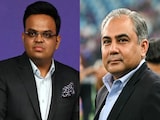The government superseded the seniormost judges twice while appointing the Chief Justice of India when it had the final say in judges' appointment, Chief Justice of India BR Gavai has said. The Chief Justice was speaking on 'Maintaining Judicial Legitimacy and Public Confidence' at a roundtable organised by the UK Supreme Court. The roundtable was also attended by Justice Vikram Nath, Baroness Carr, the Lady Chief Justice of England and Wales and George Leggatt, judge of the Supreme Court of the UK.
"In India, a key point of contention has been the question of who holds primacy in judicial appointments. Until 1993, it was the executive that had the final say in the appointment of judges to the Supreme Court and High Courts. During this period, the executive twice superseded the senior-most judges in appointing the Chief Justice of India, which went against established tradition," the Chief Justice said.
The two judges superseded for the top post are Justice Syed Jafar Imam and Justice Hans Raj Khanna. Justice Imam could not be elevated to the top post in 1964 because he was suffering from health issues and the then Jawaharlal Nehru government elevated Justice PB Gajendragadkar. Justice Khanna faced the Indira Gandhi government's ire in 1977, when he lost the Chief Justice post months after his dissenting judgment in the ADM Jabalpur vs Shiv Kant Shukla case, in which he ruled that fundamental rights cannot be suspended even during a national emergency.
"In response, the Supreme Court of India, in its judgments of 1993 and 1998, interpreted the constitutional provisions concerning the appointment of judges to establish that the Chief Justice of India, along with the four senior-most judges of the Supreme Court, would form a collegium responsible for recommending appointments to the Supreme Court," he added.
The Chief Justice said the Supreme Court in 2015 struck down the National Judicial Appointment Commission Act. The Act, he said, diluted the independence of the judiciary by giving primacy to the executive in judicial appointments. "There may be criticisms of the collegium system, but any solution must not come at the cost of judicial independence. Judges must be free from external control," he said. The Narendra Modi government had pushed for the replacement of the Collegium system. Then Law Minister Kiren Rijiju had said the system was "alien" to the Constitution.
The Chief Justice also said that courts must have the power of independent judicial review, allowing judges to assess the constitutionality of laws and government actions that conflict with the provisions of the Constitution or established constitutional principles.
Chief Justice On Ex Judges Contesting Elections
Chief Justice Gavai said a judge taking up a government post, or resigning and contesting elections raises ethical concerns. "In India, judges are subject to a fixed retirement age. If a judge takes up another appointment with the government immediately after retirement, or resigns from the bench to contest elections, it raises significant ethical concerns and invites public scrutiny. A judge contesting an election for a political office can lead to doubts regarding the independence and impartiality of the judiciary, as it may be seen as a conflict of interest or as an attempt to gain favour with the government. The timing and nature of such post-retirement engagements could undermine the public's trust in the judiciary's integrity, as it could create a perception that judicial decisions were influenced by the prospect of future government appointments or political involvement," the Chief Justice said.
"In light of this, many of my colleagues and I have publicly pledged not to accept any post-retirement roles or positions from the government. This commitment is an effort to preserve the credibility and independence of the judiciary," he said.















